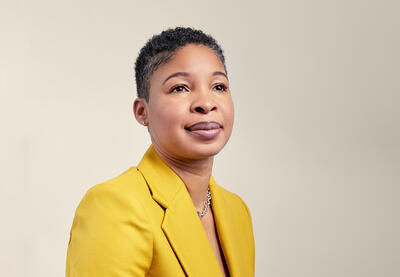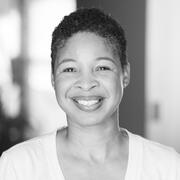The appeal for democracy is not new. And the plea for the expansion of democracy to include all people is why democracy remains a harbinger of hope today.
As the actualization of democracy, civic engagement is how we respond to and participate in our shared society. It’s how people have made space for their stories in our country’s narrative. And it is how generations have defined their place in the fight for liberation and justice for all.
In his 1830 Appeal, David Walker, born free but the son of an enslaved person, points out the contradiction between slavery in the United States and the values expressed in the Declaration of Independence. Walker calls attention to the declaration’s language on equality and the inherent rights to life and liberty, writing: “See your Declaration Americans!!! Do you understand your own language? … Compare your own language … with your cruelties and murders inflicted by your cruel and unmerciful fathers and yourselves on our fathers and on us.”
Langston Hughes, in his 1926 poem “I, Too,” defines his citizenship in the segregated U.S. when he proclaims, “I, too, sing America. … I, too, am America.”
In Fannie Lou Hamer’s 1964 testimony to the credentials committee of the Democratic National Convention on the treatment she received while trying to vote in Mississippi, she questions U.S. democracy, stating: “Is this America, the land of the free and the home of the brave, where we have to sleep with our telephones off the hooks because our lives be threatened daily, because we want to live as decent human beings, in America?”
Four years earlier, students from the colleges forming the Atlanta University Center published “An Appeal for Human Rights” as an advertisement in Atlanta newspapers. The manifesto proclaimed: “We do not intend to wait placidly for those rights which are already legally and morally ours to be meted out to us one at a time. Today’s youth will not sit by submissively, while being denied all of the rights, privileges, and joys of life.”
And in the UCLA Center for Labor Research and Education’s 2012 publication Undocumented and Unafraid, Grecia Mondragon shares their experiences in this democracy as a queer and an undocumented person, writing: “I live with the everyday struggle and challenge that comes with being a part of more than one marginalized community. … My rights as a human being are limited because I am undocumented, and my civil liberties are violated simply because I am trying to be myself.”
This is civics in action across time, place and perspectives! Each plea for democracy illustrates how, across generations, we have strived for representation. We push for it, challenge it and shape it. Civics is a collective action, practiced in community and centering the well-being of the collective.
Therefore, civics goes beyond the study of citizenship and government. It is a practice, not a monolithic body of information we must recall and accept. Civics should represent the agency and change of each generation, demonstrating the needs of the time and how people showed up for the collective good. The scope of civics is dynamic.
Civics is nothing less than the expansion of democracy to more groups of previously excluded people. Collective agency and acts of resistance have been the most powerful and inspiring ways of participating in democracy. This is why knowing the true history of our nation is fundamental to understanding the rights and responsibilities each person has in challenging democracy to be more inclusive.
Radical democratic practice is not formulaic. Rather, it is entrenched in deliberation by the people. The combination of interaction, discussion and consensus-building is a precursor to the electoral and legislative victories and court decisions that cement the values of democracy. Importantly, this radical approach to situational democracy centers equity and inclusion, not merely the majority’s interests. We must constantly assess power dynamics, shift power and redirect it to support the least powerful of the particular moment.
In A People’s History of the United States, Howard Zinn refers to this type of radical, situational democracy in the chapter “The Coming Revolt of the Guards.” He describes what we are calling for today: a new, innovative, multiracial and inclusive democracy. To achieve this reshaping and expansion of democracy requires radical measures. We are challenged to relinquish the benefits and disproportionate power many of us receive as “guards of the system” as we engage in democratic practices with those Zinn refers to as the “prisoners of the system.” Today’s democracy requires the “guards” and “prisoners” to join forces to dismantle the old system while building a new one reflective of all. This is the start of a new radical inclusive democracy.
Our democracy’s strength depends on how we as a collective citizenry respond to the needs of the most oppressed. This inverted hierarchy of power is reiterated in the words of Fannie Lou Hamer: “Nobody’s free until everybody’s free.”



0 COMMENTS